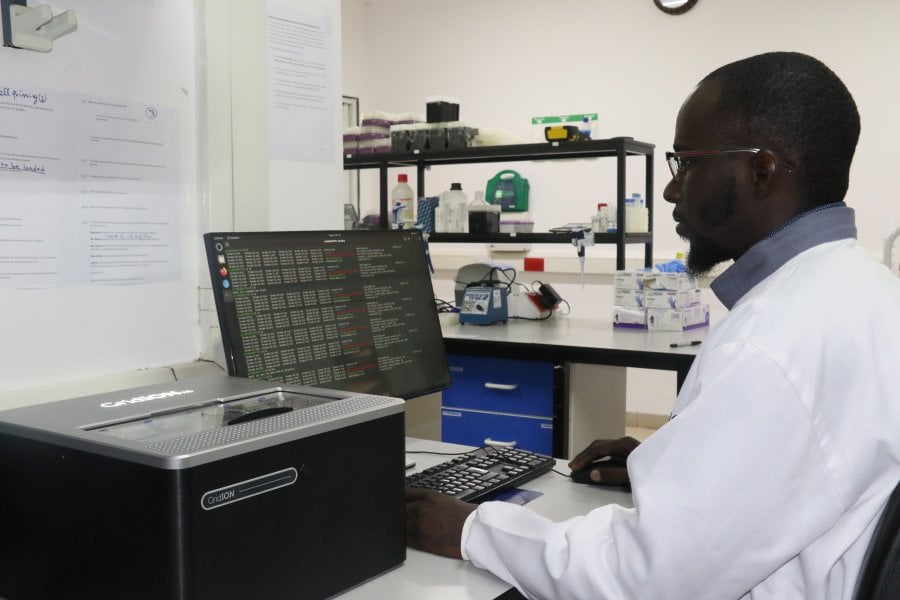
Throughout the pandemic, only 2% of global cases and 3.9% of deaths from COVID-19 were recorded across Africa, despite having 17% of the world’s population. Other research suggests that transmission in Africa was much higher than recorded.
Using modern genomic techniques and in partnership with the Gambian Ministry of Health, the novel study showed certain patterns in transmission of COVID-19 in The Gambia.
Lead senior author Dr Abdul K Sesay noted, “Right before the first case of COVID-19 in the country, the MRCG at LSHTM was prepared to help support the government to respond in a positive manner to the global outbreak.”
From March 2020 – January 2022 there were nearly 12,000 confirmed cases of COVID-19 in the Gambia, of which researchers at the MRCG sequenced over 1,600 SARS CoV-2 genomes. They uncovered a distinct link between pandemic peaks and increased cases coinciding with the rainy season which runs from July to October.
Across the nearly two-year period, there were four distinct waves of infection. Each followed the introduction of a new variant or lineage, largely from Europe or other African countries, and each with different impact and transmission rates. In the first and third waves - which corresponded with the rainy season - local transmission in The Gambia was higher; with the B.1.416 lineage and delta (AY.34.1) most common. There was a notable increase in lineage and variant diversity after the borders opened, with epidemic waves following.
Abdoulie Kanteh, PhD candidate and first author stated, “The findings shows the importance of using genomic surveillance data to understand the extend of an epidemic at regional context especially during a pandemic. Given the scarcity of data on the transmission and viral dynamics of SARS-CoV-2 in Sub-Saharan Africa, this study fills important knowledge gaps in the subregion.”
The researchers pointed out that that proper surveillance specifically during the rainy season - including strengthening entry points of travellers into the country as well as screening people who are asymptomatic. These tightened restrictions would help to gain control of any future waves of COVID-19, both in the Gambia and west Africa as a whole.
“Importantly, the study highlights the importance of building capacity in Africa,” Kanteh added.
The ability to undertake detailed genomics analysis locally is critical in creating a deeper independent understanding of the public health issues faced in The Gambia and more widely across Africa. This information can be used to help improved preparation and responses to future waves of infection.
Professor Anna Roca, who was also a senior author on the paper, remarked, “This shows that the MRCG is capable of responding to international health threats with high-tech science, thanks to a combination of both experienced and junior scientists overcoming challenges to make a difference.”
Dr Sesay added, “I am proud of the close collaboration with the MoH from decentralising the diagnostics of COVID-19 and the successful genomics epidemiological surveillance of the viruses in the Gambia. The equitable partnership between the Gambia MoH and MRCG has shown the region and the continent how research institutions and public health can work effectively together.”
LSHTM's short courses provide opportunities to study specialised topics across a broad range of public and global health fields. From AMR to vaccines, travel medicine to clinical trials, and modelling to malaria, refresh your skills and join one of our short courses today.
